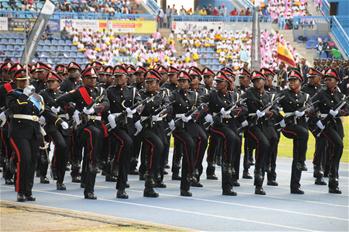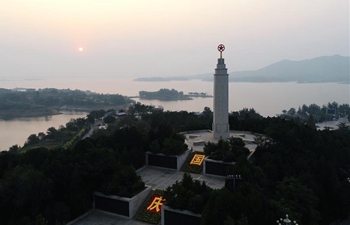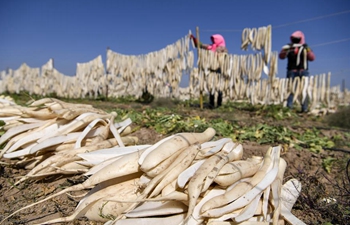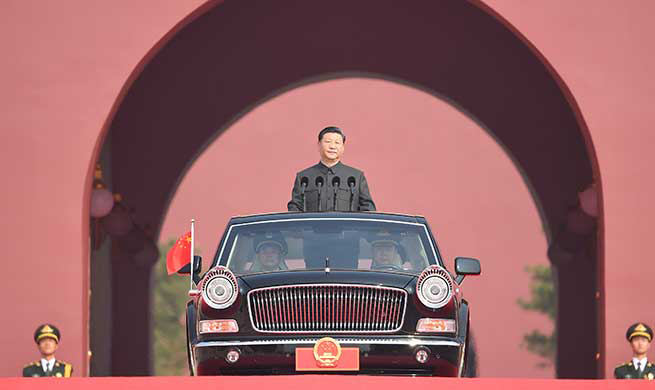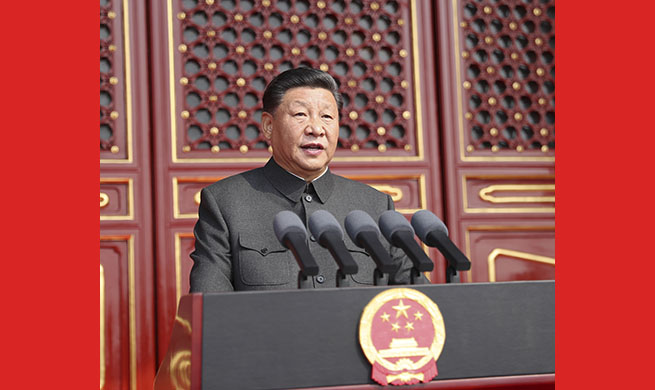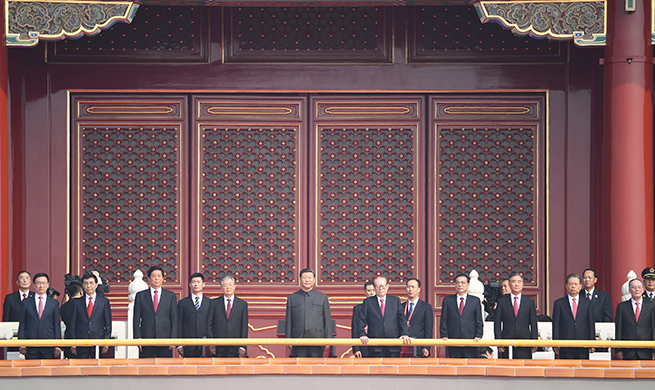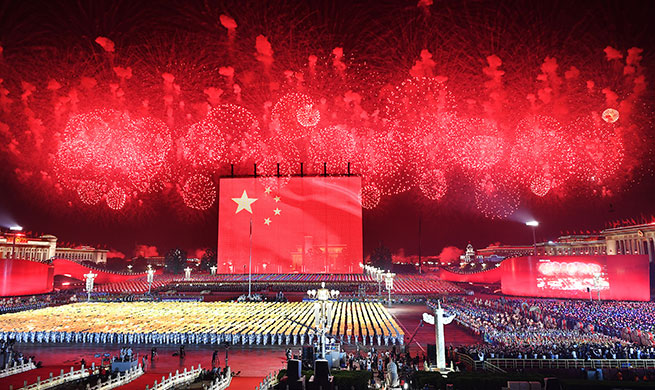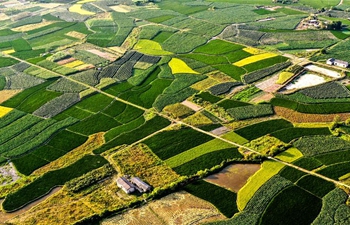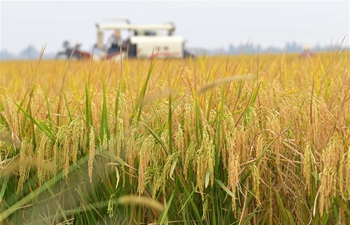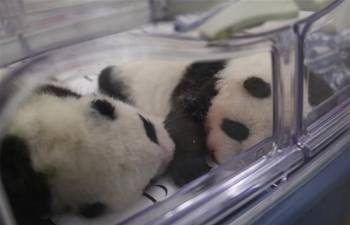by Burak Akinci
ANKARA, Oct. 2 (Xinhua) -- Turkish President Recep Tayyip Erdogan said his country's patience to cooperate with the United States to create a safe zone in north Syria was running out, indicating an imminent operation by Turkish forces.
"We have not achieved any of the results we desired in the east of the Euphrates," Erdogan said on Tuesday at the parliament's opening ceremony in Ankara.
"Turkey cannot lose even a single day on this issue. There is no other choice but to act on our own," he added.
The two NATO allies, Turkey and the United States, agreed in August to establish a buffer zone to keep Syrian Kurdish militants away from the Turkish border and help repatriate millions of refugees on Turkish soil.
Erdogan has repeatedly threatened to launch a unilateral operation against the U.S.-backed Kurdish People's Protection Units (YPG) if the buffer zone was delayed. Ankara has set the end of September as the deadline for an action.
The YPG, which controls a swathe of land east of the Euphrates in northern Syria, is a key partner for Washington in the fight against the Islamic State, but Ankara says it is a "terrorist" offshoot of Kurdish separatists in its own territory.
While the deadline set by Ankara has expired, Turkey is still keen to wait a bit longer in order to get the Americans on board, said political analyst and journalist Serkan Demirtas.
"Washington said that it would absolutely disapprove a unilateral Turkish action and Erdogan's yesterday (Tuesday) speech suggests that there is still some room for maneuvers to reach an agreement with the U.S.," he told Xinhua.
"There is an uncomfortable uncertainty about a Turkish unilateral action, and even if there is one, it would be limited to some precise areas," instead of a full-fledged cross border offensive, argued Demirtas.
The Turkish leader had been expecting a meeting with U.S. President Donald Trump during the United Nations General Assembly last week in New York, but the expected meeting ended up with a brief phone conservation and a quick word during the closure reception.
Turkish government sources said that the Turkish side had attached utmost importance to this meeting because it was hoping to clear some remaining obstacles before setting up the safe zone in line with Ankara's demands.
Hurriyet daily columnist Hande Firat wrote that Ankara is now hoping an immediate phone conversation between the two leaders, after which the Turkish government will finally decide how it will move forward regarding the safe zone.
Erdogan had also hoped that the buffer zone would allow the return of up to two million Syrian refugees.
"We are of course aware of the economic, social and cultural challenges caused by 3.6 million refugees because the Syrian crisis has been protracted," he said.
"We plan to settle two million people in the safe zone we will establish. We calculated the costs and we will carry out efforts to improve. We will start taking steps as soon as the region is saved from the invasion of terror," the Turkish president added, referring to the YPG.
He accused Western countries of deliberately refusing to share the refugee burden.
However, Demirtas argued that the refugee repatriation part of Turkey's ambitious safe zone plans in northern Syria will not be feasible without the support and help from the international community and the United States in particular, who has around 2,000 troops there.
A Turkish diplomatic source said to Xinhua that Ankara would not assume on its own the huge expense or the responsibility of a vast buffer and resettlement zone which would cost billions of dollars.
"For such a zone to be viable and effective, international cooperation and interaction is a must," said the source on condition of anonymity.
The Turkish military has launched two cross-border operations into Syria against the YPG and the Islamic State, in 2016 and 2018 respectively.
Ankara and Washington reached a deal to establish what the Pentagon had called a combined joint operations centre (CJOC) to facilitate the creation of the safe zone.
Since the establishment of the CJOC earlier in September, Turkey and the United States have conducted several aerial and ground patrols, however, Ankara has grown frustrated about the lack of progress.
Several Turkish officials, including the Turkish Foreign Minister Mevlut Cavusoglu, described the U.S. steps as cosmetic while Defense Minister Hulusi Akar said on Tuesday that his country is "ready for an offensive" and "is not joking" about it.


